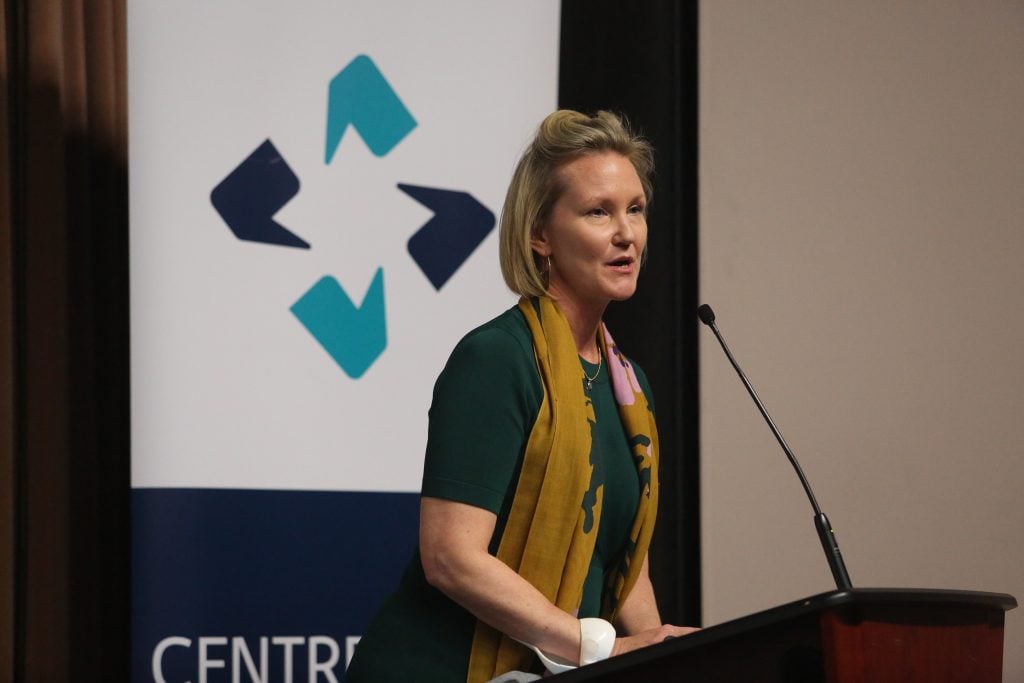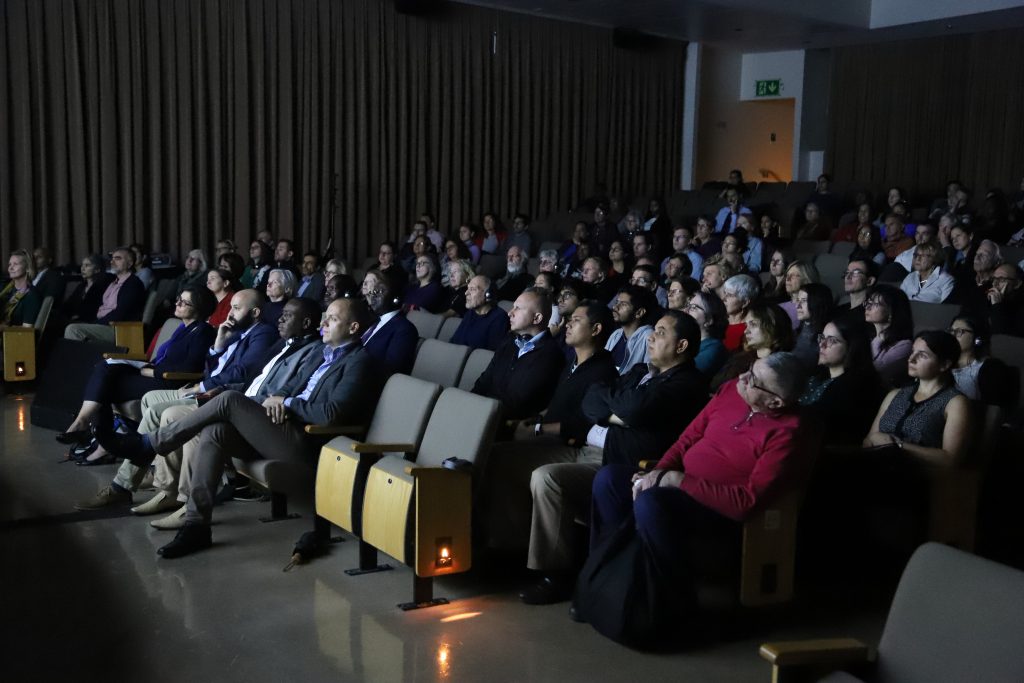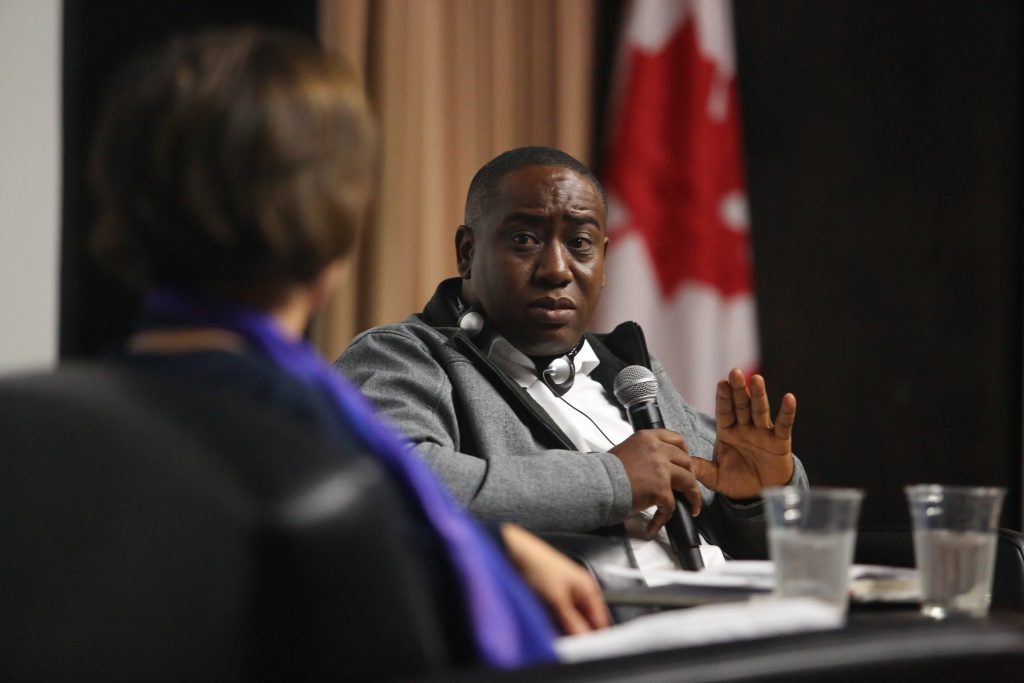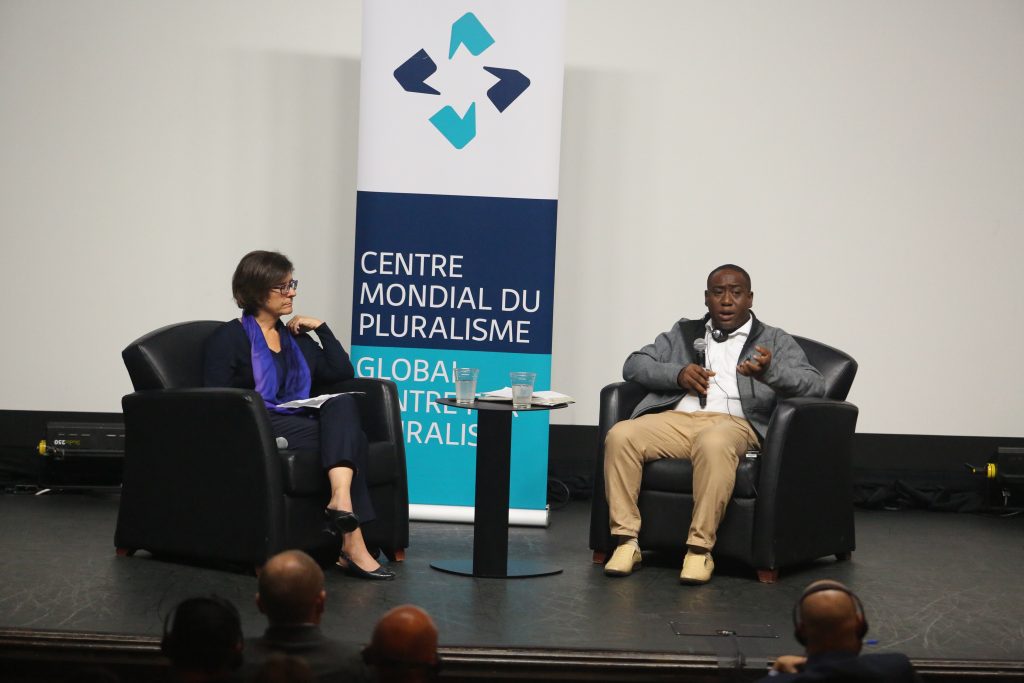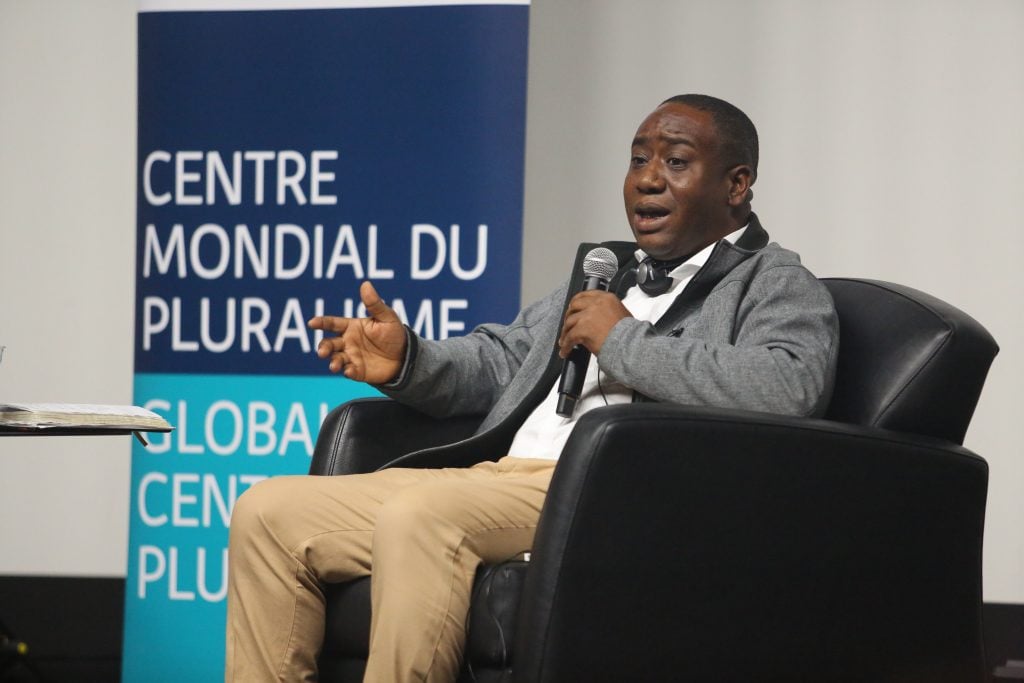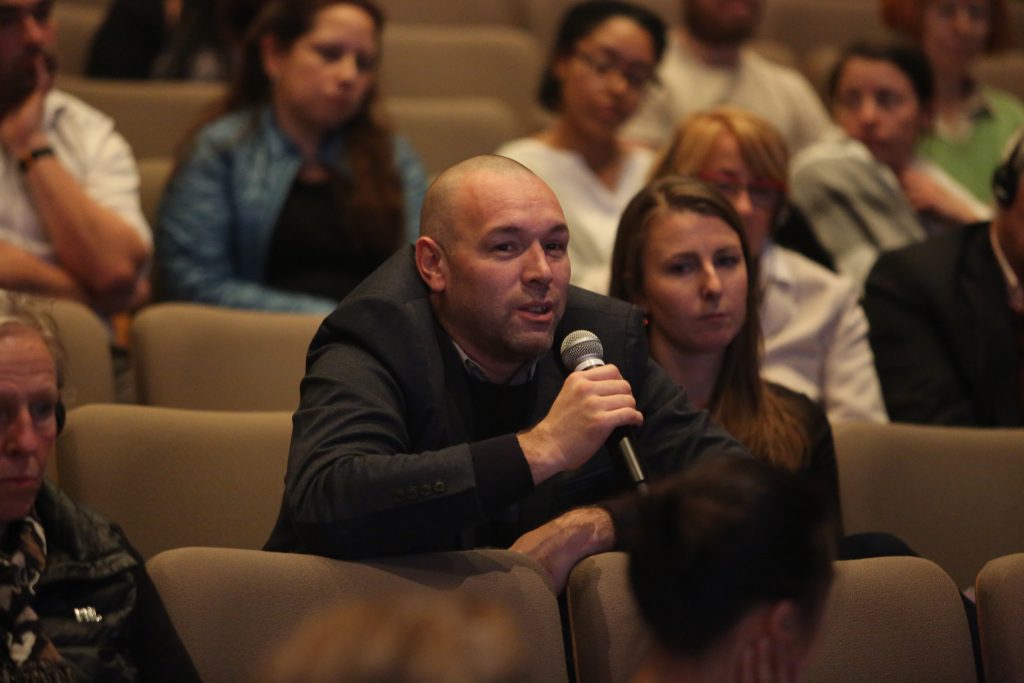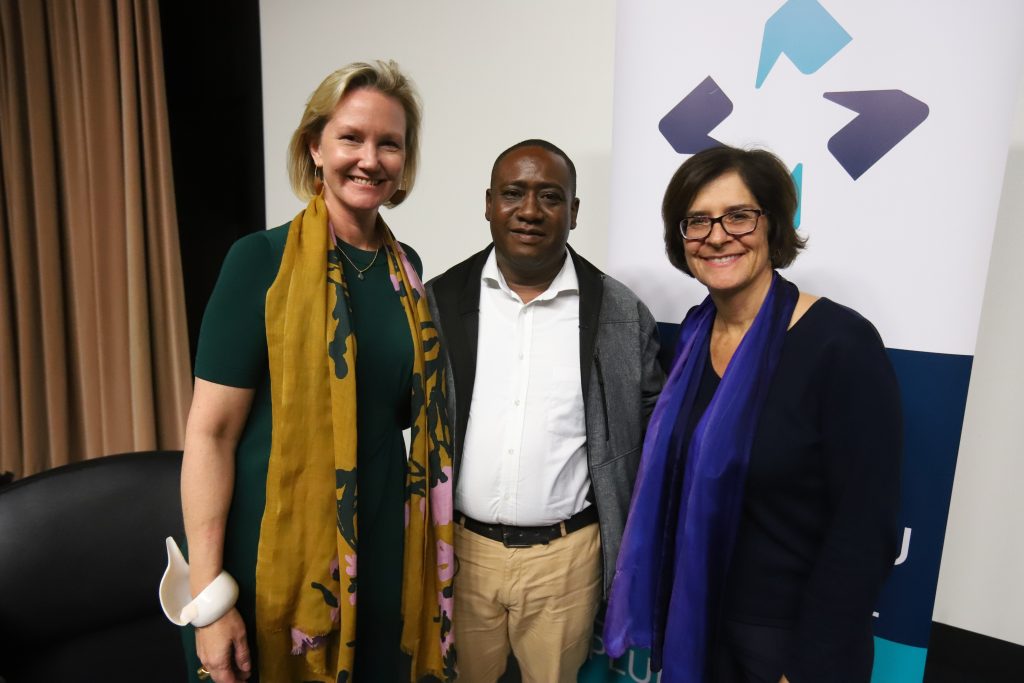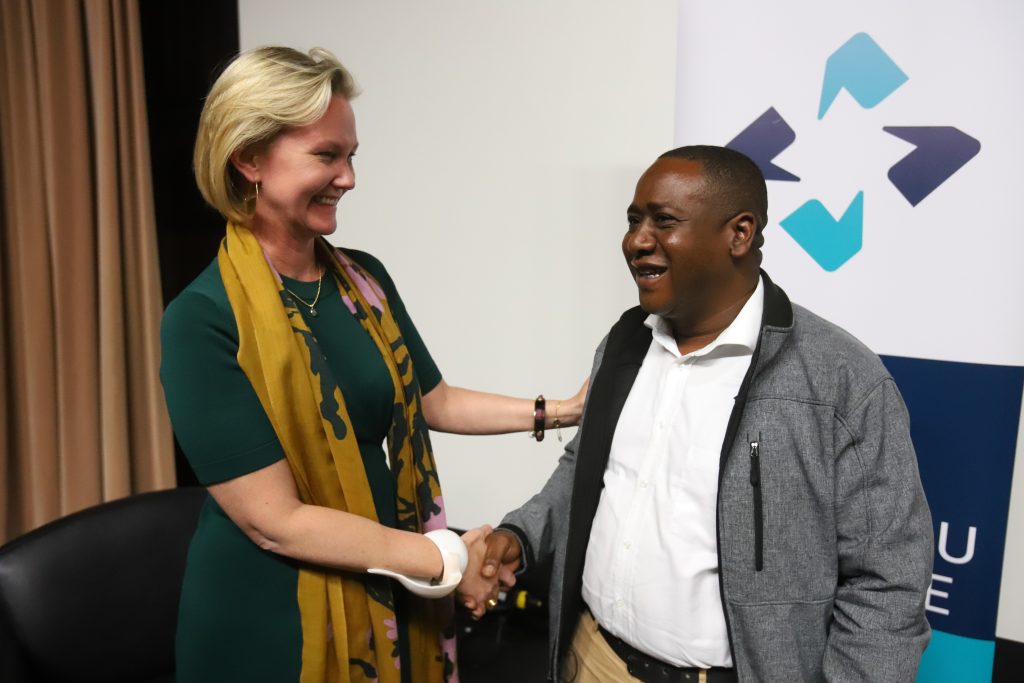Bojayá: Caught in the Crossfire - Film Screening and Discussion
When the Colombia peace agreement was passed in 2016, it was met with widespread relief and hailed as a major step towards stable and lasting peace in the country. However, there was also considerable concern about its viability. Built into the peace agreement were a number of transitional justice mechanisms which aimed to seek justice yet still enable as many combatants as possible to reintegrate into a post-conflict society. Although peace was a priority, many felt that this arrangement was too lenient and lacked accountability for crimes committed during the conflict. Transitional justice became a clear dividing line.
On October 30, 2019, the Centre hosted a screening of the 2019 Hot Docs Festival documentary Bojayá: Caught in the Crossfire, about the peacebuilding efforts of Leyner Palacios Asprilla, a Nobel Peace Prize nominee and 2017 Global Pluralism Award winner, who lost 32 relatives in a massacre during the Colombian conflict. The film follows Leyner as he grapples with the past and moves forward in his mission to ensure key elements of the 2016 Colombian peace agreement are implemented for the safety and recovery of his people.
Following the screening was a thoughtful discussion featuring Leyner and Colleen Duggan, head of the Governance and Justice program at Canada’s International Development Research Centre (IDRC). The discussion provided Leyner, Colleen and an audience of nearly 200 people the opportunity to reflect on the themes of reconciliation, accountability and the systemic and persisting inequalities that affect Colombia. The interventions of members of Ottawa’s Colombian diaspora provided strong examples of the power of film to cut straight to the heart of important and complex subjects. During the discussion, the dangers facing community-based activists working on behalf of vulnerable and excluded communities throughout Colombia were also brought into sharp relief, as was the need for continued and committed engagement by international partners to help Colombia implement key aspects of the peace agreement.
Leyner shared some of the important ongoing work of indigenous and Afro-Colombian activists and civil society groups, in particular, that of the Interethnic Truth Commission for the Pacific Region, of which he was appointed Secretary General in 2019. By incorporating indigenous and Afro-Colombian perspectives into reconciliation, the Commission takes a ground-breaking, holistic and pluralistic approach. Aside from the obvious physical and material toll of the Colombian conflict, the Interethnic Commission explores how to address spiritual, environmental and cultural harms, among others. The work of the Commission, Leyner’s peers and fellow activists are yet another example of pluralism in action under dangerous and uncertain conditions.
This film was produced and made available to GCP by Fine Point Films.
Leyner Palacios Asprilla
Leyner Palacios Asprilla founded the “Committee for the Rights of Victims of Bojayá”, which united 34 semi-autonomous Emberá Amerindian communities and 18 Afro-Colombian communities, and gave a voice to over 11,000 victims of the Colombian conflict. Palacios Asprilla’s role with the Committee allowed him to represent Bojayá’s massacre victims during the peace negotiations between the FARC and the Colombian government. He was recently named as the Secretary General for the Interethic Truth Commission of the Pacific.
Colleen Duggan
Colleen Duggan is the head of the Governance and Justice program at the International Development Research Centre. Before joining IDRC, Colleen worked for more than a decade with the UN High Commissioner for Human Rights and UN Development Program in Colombia, Guatemala, El Salvador, and New York, where she was involved in security sector reform, transitional justice, human rights, and peacebuilding. She has published works on early warning and conflict prevention, gender and transitional justice, and the evaluation of peacebuilding initiatives.

